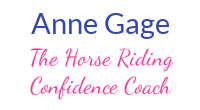Tuesdays are when I regularly work with my two most challenging clients. Both suffer from a sort of PTSD –
Previous Training Stress Disorder. I only work with each of these horses once a week because the owners – based on their previous negative experiences with trainers – are hesitant to have the horse’s go out for training.
Both horses had serious trust and confidence issues when I first met them. The 9 year old Arabian gelding, had a history of bolting and was afraid of everything (no exaggeration). He had an extremely strong flight (as in “get the h@#$ out of here NOW!!!!) instinct. He panicked at what might have caused a slight startle in the average horse. The 4 year old Quarter Horse gelding had become dangerous because of his aggressive behaviour. He decided that the “I’ll get you before you get me” defense was the best option for survival. There were a lot of ground work sessions with both horses to build trust, respect and confidence.
The path to re-training in these situations is rarely straight. We had sessions where progress was made. Sessions where we seemed to be going backwards. And sessions where we just worked to keep the status quo. That’s how it goes when rehabilitating traumatized horses. But today, both horses had a lesson for me.
The weather was warm and sunny – unusual for this time of year in Ontario. The type of day when horses are generally feeling calm and relaxed. But, both of these horses were a bit on edge. The Arabian didn’t want to stand still to let me mount. We had worked through that issue ages ago. Last week, he had made a break through by being able to ride out of his familiar surroundings in the small paddock, go through the gate (something could be hiding behind that thing, you know) and into the big paddock. This was a big step since we were moving further away from his two buddies AND closer to the bush where the noisy crows live. I had hoped to be expanding that comfort zone even further today. As I was working through the “standing still for mounting” process, I was feeling a bit disappointed and thinking that we would be doing well to maintain a relaxed, quiet walk in the small paddock today.
Flash forward to the session with the Quarter Horse. He was very distracted, unfocused and pushy while being groomed in the barn. His behaviour was so bad that I decided it was not safe to tack him up in the barn. Again, feeling disappointment and wondering what had triggered this relapse in his behaviour, I lead him to the arena ready for a full session of ground work. I thought we would be doing well if I could tack him up calmly by the end of the session. He started the session with some rearing, bucking and kicking out at me.
Thank goodness neither of these horses read my thoughts. Despite starting out more stressed than usual, they both made more progress in today’s sessions. Not only did the Arabian walk (under saddle) very relaxed into the big paddock, he went further away from his buddies and closer to the scary bush with the very vocal crows. We were even able to do something new – mounting and dismounting in that big paddock. A big deal to a horse who does not handle the smallest change in his environment or routine well.
And the angry, rearing Quarter Horse? Well, we tacked up and rode quietly around the arena for 20 minutes. Stress free. No tying himself up on knots about the contact or going backwards or sideways from my leg. Just a nice forward, free walk. The best ride we have had so far.
The toughest horses are the greatest teachers. Today, these two wonderful, traumatized horses taught me to go with the flow, stay in the moment and be open to what may evolve. Yes, they were both stressed at the beginning of their sessions. But our relationships are based on enough trust and respect that it really took very little time to rekindle their confidence. Rather than letting my disappointment affect how I worked with them, my behaviour was consistent. I was able to give them what they needed in the moment to relieve rather than exacerbate their stress.
How different would all of our interactions be if we didn’t let our judgments and pre-conceived notions affect our behaviour? What would happen if we went with the flow, stayed in the moment and gave the other party what they needed to be their best? It works with the horses. As my two most challenging clients taught me today. I’m looking forward to next Tuesday.

